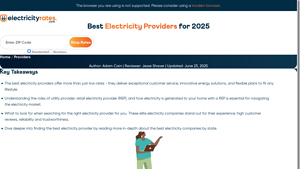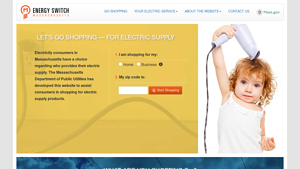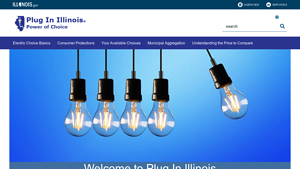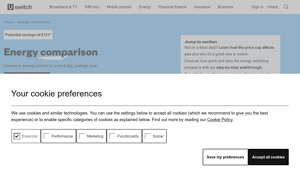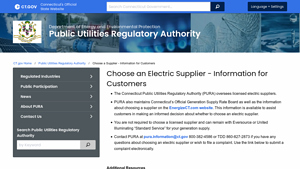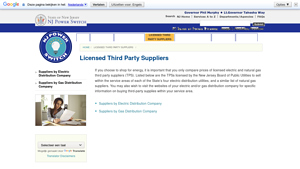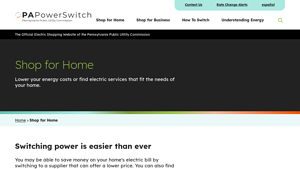Are you struggling to find a reliable electric supplier for your next project? You’re not alone! With countless manufacturers out there, pinpointing the right one can feel overwhelming. But the good news is that choosing the best factory can make all the difference in quality, efficiency, and cost savings. Imagine partnering with a top-tier supplier that understands your needs and delivers outstanding products every time. The right choice can boost your project’s success and streamline your operations.
Ready to simplify your search? Join us as we dive into the top 30 electric supplier factories, helping you make an informed decision that propels your projects forward. Keep reading to discover your perfect match!
Top 13 Electric Supplier Manufacturers
Choose Energy – Compare and Switch Electricity Providers
Domain: chooseenergy.com
Registered: 1999 ( 26 years )
Introduction: Choose Energy offers a platform for consumers to compare and switch electricity providers, enroll online, and access information about energy services including solar energy and business energy solutions.
Vattenfall – Electricity and Heating Solutions
Domain: vattenfall.se
Registered: 1991 ( 34 years )
Introduction: Vattenfall offers electricity supply contracts for residential customers, district heating services, and additional products such as heat pumps and solar panels.
Energizect – Energy Supplier Rate Comparison Solutions
Domain: energizect.com
Registered: 2012 ( 13 years )
Introduction: Energize Connecticut offers a platform to compare energy supplier rates, along with various energy efficiency solutions, rebates, and financing options for residential and commercial customers.
Compare the Market – Energy Supplier Switching Solutions
Psc – Maryland Electricity Supply Solutions
Domain: psc.state.md.us
Registered: 2003 ( 22 years )
Introduction: Electricity supply options for consumers in Maryland, including renewable energy sources and standard offer service.
ElectricityRates – Flexible Energy Solutions
Domain: electricityrates.com
Registered: 2004 ( 21 years )
Introduction: Electricity and energy services, including flexible plans and innovative energy solutions.
Energyswitchma – Competitive Electric Supply Solutions
Domain: energyswitchma.gov
Registered: 2016 ( 9 years )
Introduction: Electric supply products offered by competitive suppliers in Massachusetts that vary according to price, renewable energy content, and additional energy technology services.
Plug In Illinois – Electric Choice Solutions
Uswitch – Energy Comparison Services
Domain: uswitch.com
Registered: 1999 ( 26 years )
Introduction: Gas and electricity comparison services to help consumers find the best energy deals.
Portal – Electric Supplier Options in Connecticut
Domain: portal.ct.gov
Registered: 2001 ( 24 years )
Introduction: Licensed electric supplier options for consumers in Connecticut.
Eversource – Residential Electricity Supply Solutions
Domain: energy.nh.gov
Registered: 2002 ( 23 years )
Introduction: Eversource offers residential electricity supply with a fixed rate schedule for the period of February 2025 through July 2025 at a rate of $0.08929 per kWh.
Nj – Energy Supply Solutions
Domain: nj.gov
Registered: 2001 ( 24 years )
Introduction: Licensed electric and natural gas third party suppliers (TPS) for residential and commercial energy needs in New Jersey.
Papowerswitch – Pennsylvania Electricity Supply Options
Domain: papowerswitch.com
Registered: 2010 ( 15 years )
Introduction: Electricity supply options for residential customers in Pennsylvania, including the ability to compare rates and services from different suppliers.
Category Information
The category of “electric supplier” encompasses companies and entities that provide electricity to residential, commercial, and industrial customers. These suppliers play a crucial role in the energy market, often sourcing electricity from various generation methods, including fossil fuels, renewables, and nuclear energy. Electric suppliers can operate in regulated markets, where prices and services are set by government authorities, or in deregulated markets, where consumers have the freedom to choose their providers based on price, service, and sustainability options.
The significance of electric suppliers lies in their impact on energy accessibility, pricing, and environmental sustainability. They help to ensure a reliable supply of electricity, which is essential for everyday life and economic activities. Additionally, as the world shifts towards greener energy solutions, electric suppliers are increasingly tasked with integrating renewable energy sources into their offerings, contributing to a more sustainable energy future.
Application Information
Electric suppliers play a crucial role across various industries by providing essential energy resources. One of the primary application areas is residential energy supply, where households rely on electric suppliers for daily power needs, including lighting, heating, and appliances. This sector is vital for maintaining comfort and convenience in everyday living. Another significant area is commercial energy supply, catering to businesses ranging from small shops to large corporations.
Electric suppliers support operations by powering equipment, lighting, and HVAC systems, thereby ensuring productivity and comfort in the workplace. Additionally, the industrial sector relies heavily on electric suppliers to power machinery and production lines, making them essential for manufacturing processes. Renewable energy supply is also emerging as a critical application area, with electric suppliers increasingly offering green energy solutions. This shift supports sustainability goals and meets the growing demand for eco-friendly energy sources.
Overall, electric suppliers are integral to residential, commercial, industrial, and renewable sectors, facilitating a wide range of applications.
Production Process Information
The production process for electric supplier-related products and services typically involves several key stages. First, planning and design take place, where engineers and designers create plans for electric systems or components, ensuring they meet safety and efficiency standards. This stage includes selecting materials and technologies that will be used in the manufacturing process. Next comes the manufacturing stage, where the actual products—like transformers, circuit breakers, or smart meters—are produced.
This involves assembling components, testing for quality, and ensuring compliance with regulations. Finally, the installation and maintenance phase is crucial. Once products are manufactured, they are installed at customer locations, and ongoing maintenance is provided to ensure reliability and safety. Throughout the entire process, careful attention is paid to regulatory compliance, customer needs, and environmental considerations, ensuring a sustainable and efficient electric supply service.
Related Video
Frequently Asked Questions (FAQs)
What should I look for when choosing an electric supplier factory?
When choosing an electric supplier factory, consider several key factors. First, evaluate their experience and reputation in the industry. Look for manufacturers with a proven track record and positive reviews from previous clients. Additionally, check their certifications and compliance with industry standards, as this ensures quality and safety. It’s also important to assess their production capacity and lead times to ensure they can meet your demands. Finally, consider their customer service and communication style, as a responsive and supportive supplier can make your partnership much smoother.
How can I verify the credibility of a potential electric supplier?
Verifying the credibility of a potential electric supplier can be done through a few effective methods. Start by researching online reviews and testimonials from other businesses that have worked with them. You can also request references and follow up with those clients to gain insights into their experiences. Additionally, check if the supplier has any industry certifications or memberships in professional organizations, which can indicate their commitment to quality. Finally, consider visiting their factory if possible, as this will give you a firsthand look at their operations and practices.
What are the typical payment terms offered by electric suppliers?
Payment terms can vary widely among electric suppliers, but common options include upfront payments, partial payments, or payment upon delivery. Some suppliers may offer net 30 or net 60 terms, which allow you to pay within a certain number of days after receiving the invoice. It’s essential to discuss and negotiate these terms upfront to find a mutually beneficial arrangement. Be sure to also clarify any penalties for late payments or discounts for early payments, as these can impact your overall costs.
How do I ensure the quality of products from an electric supplier?
To ensure the quality of products from an electric supplier, start by asking about their quality control processes. A reputable manufacturer should have strict quality assurance protocols in place, including regular inspections and testing of their products. Request samples before placing a large order to assess the quality firsthand. Additionally, consider asking for documentation of compliance with relevant industry standards and certifications. Establishing a clear communication channel with your supplier can also help you address any quality concerns promptly.
What are the advantages of working with local versus overseas electric suppliers?
Working with local electric suppliers offers several advantages, including shorter lead times, lower shipping costs, and easier communication due to time zone alignment and cultural similarities. It can also be simpler to manage logistics and quality control when suppliers are nearby. On the other hand, overseas suppliers may offer lower prices due to lower production costs. However, this can come with challenges such as longer shipping times, potential language barriers, and different regulatory standards. Ultimately, the choice depends on your specific needs, budget, and priorities.






